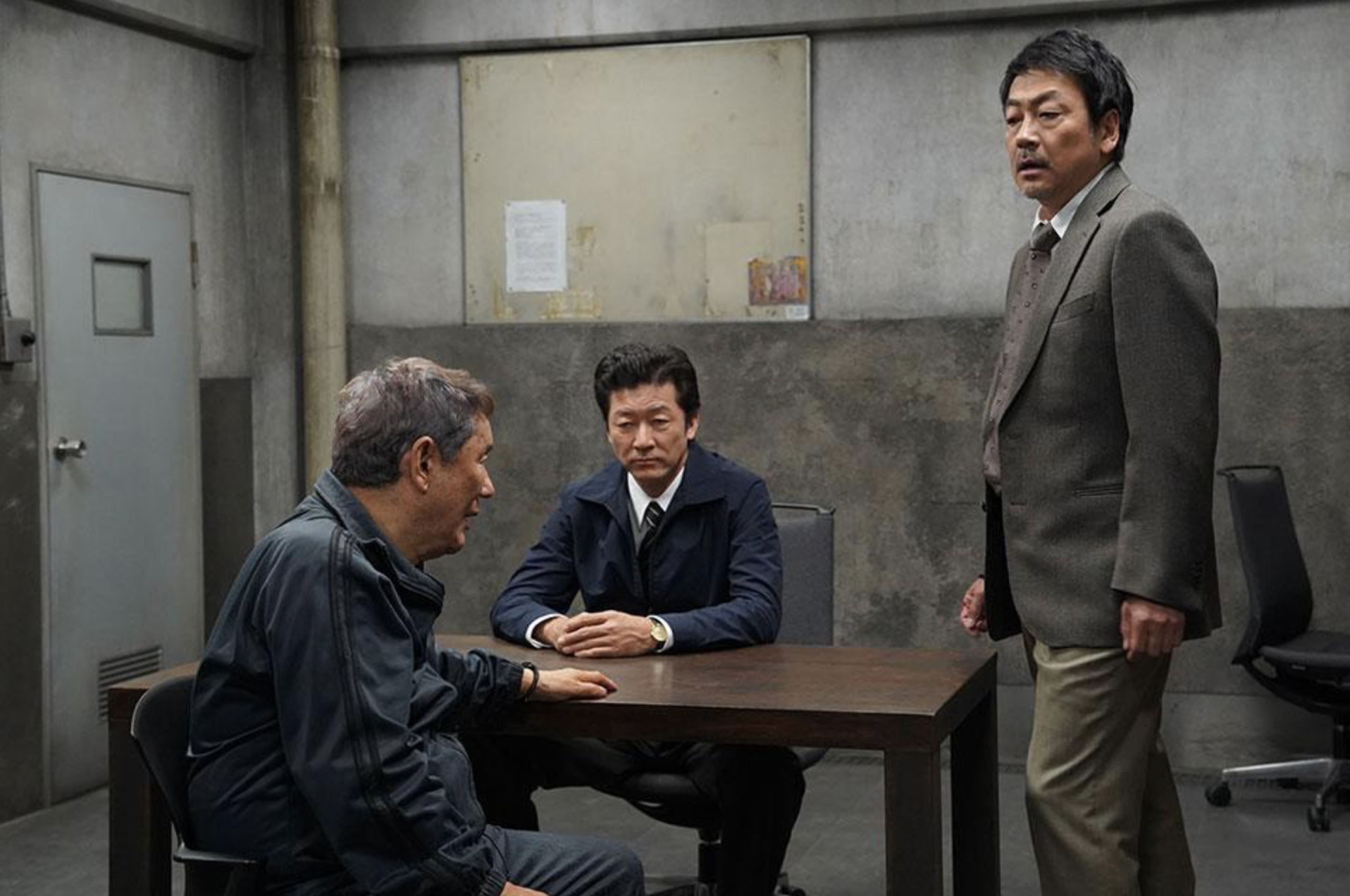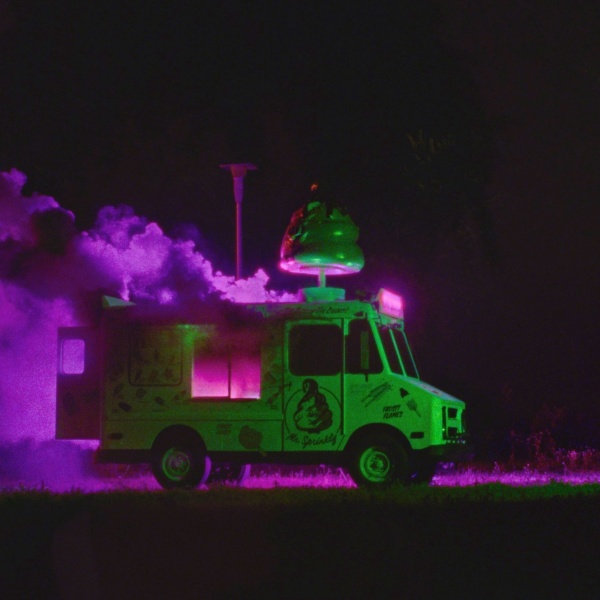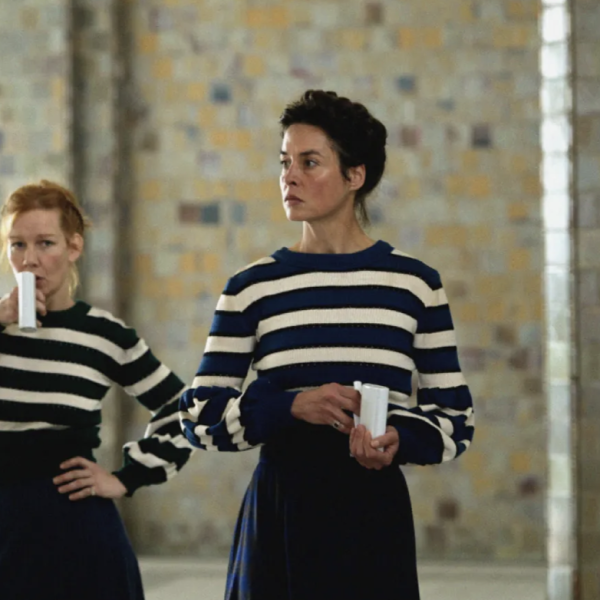As if the very title didn’t give away the game, “Broken Rage” never lives up to its central conceit. Nor does it try to, not that the director particularly cares, and neither should any of us, because the film that Takeshi Kitano actually delivered is all the more delightful. Promising a kind of diptych that starts as a gritty Yakuza flick before doubling back to redo the same scenes for farce, the film plays as a more elemental game of set-up and payoff, giving viewers — and itself — the most loving possible raspberry and the least-toxic troll. That Kitano does all that in just an hour’s length endears even more. We should be so lucky to have broken promises this sturdy.
To be fair, the bait and switch is obvious from the jump. While the film’s first half is supposed to shoot straight as a hit-man thriller, the hired gun that shambles up to a Tokyo coffee shop walks on bow-legs, mugs like Buddy Hackett and sits below a ridiculous toupee — it’s Beat Takeshi! How grim can things get?
One need hardly ask. Starting from a drier deadpan before rebooting into unbridled absurdity, “Broken Rage” is a concise lesson in parody, creating a simple form and then breaking it with the subtle force of a mallet smashing a watermelon. And so we go through the motions, checking off every box on the generic hit-man list. We follow Mr. Mouse (Kitano) from the coffee shop where he retrieves his mission, then to the hit, coordinated with a costumed escape, and finally back to his ascetic abode, where he sits with monk-like quiet until the next envelope arrives.
The film is already quite funny as it finds the doughy hitman trailing a target at the gym and struggling to keep up on the treadmill. Or when, within the span of five screen minutes, the hitman gets pinched and interrogated by the cops, turned mole, and nearly instantly welcomed into the Yakuza after a staged bar brawl. The magic of the movies, the director is saying. Isn’t it something?
That it is, and all the more so when this particular moviemaker really gets cooking. So we keep the ball rolling through the most DTV mobster mash you ever did see, through the drug deals and double crosses and questions that begin to alarm. This is only getting funnier, and more ridiculous. What happens when the actual comedic half begins?
The answer is bedlam. Once the first half peters off with bad guys arrested and our valiant Mr. Mouse on top, we loop back the same opening establishing shot of Tokyo. Only instead of soaring into the city nightscape, the damn camera goes and falls off the rig — only hinting at the anything-and-everything goes wrong barrage Kitano has in store. Initially recreating the first half scene-for-scene before very quickly goofing on that idea as well, Kitano uses our immediate familiarity to let chaos reign. The tone becomes slapstick on a near operatic scale — no scene complete without a pratfall, no pratfall accented without the loudest sound effect possible. Turning the film into a conduit for pure anarchic glee, Kitano gets about as close as possible to a live-action cartoon.
What was funny becomes hilarious once the filmmaker begins on his payoffs. At risk of getting too academic here, the 1:1 overlay gives an ideal case study in comedy writing, opening the thought process that takes an otherwise mundane object — a manila envelope, say — and then renders it funny by rendering it different, bigger or smaller or the wrong the shape or containing something unexpected. I dare not ruin Kitano’s decision — besides, what makes a gag funnier than some blowhard trying to describe it in a review? — but can say that his comic ingenuity far exceeds these paltry examples.
As in the best farces, the filmmaker plays with formal irreverence as well. Kitano trolls himself as well, pointing out the budget gaps and shortcuts and generally limited means he had at his disposal. At several points the screen goes blank, the action replaced by text message commentary from jeering viewers. They go meta, complaining about the very interlude and diagnosing it as filler — but then, movies are too long these days, so why not let this run out of steam?
It doesn’t — not at the pat and perfect 66 minute run time. Audiences get what they want and more — with time for dinner thrown in. And Kitano, who has threatened retirement for the past few years, can wind down with his comic skill uncontested. And if the film never quite works as the hard-hitting killer thriller originally promised, well, consider that one last parting troll. Comedy is easy; dying is hard.
Grade: B+
“Broken Rage” premiered at the 2024 Venice Film Festival. It is currently seeking U.S. distribution.
Want to stay up to date on IndieWire’s film reviews and critical thoughts? Subscribe here to our newly launched newsletter, In Review by David Ehrlich, in which our Chief Film Critic and Head Reviews Editor rounds up the best reviews, streaming picks, and offers some new musings, all only available to subscribers.





